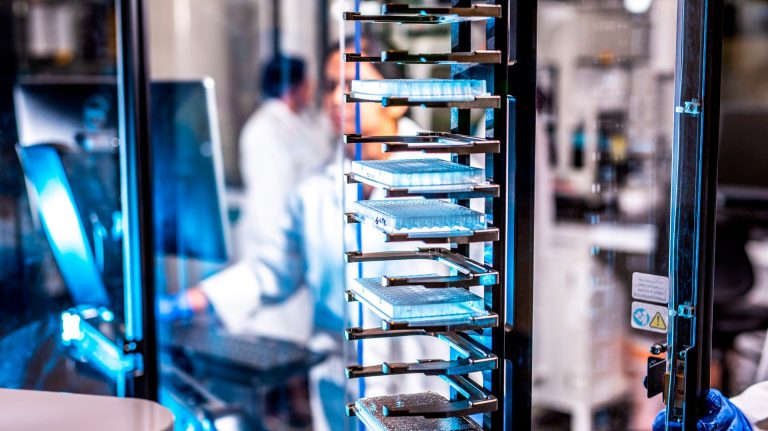Concordia co-founds the Global Biofoundry Alliance

Concordia is among the 15 founding institutions from four continents in the new Global Biofoundry Alliance (GBA). The collective of foundries was introduced at the Integrated Research Center of Kobe University in Japan on May 9.
Vincent Martin, professor in Concordia’s Department of Biology, is co-director of the university’s Centre for Applied Synthetic Biology — home of Canada’s only genome foundry. He explains that the GBA will allow researchers to share experiences and resources, and work together to overcome common challenges and unmet scientific and engineering needs.
“Using biofoundries effectively requires a paradigm shift in how we do biological engineering. Training the next generation to effectively exploit these technologies is also extremely important,” Martin says.
“Notwithstanding these challenges, representatives from all 15 institutions agreed that biofoundries are a critical enabling technology for individual countries to develop capability and deliver on the significant promise of biotechnology research.”
At Concordia’s Genome Foundry, for instance, the speed and scale of synthetic biology research has been increased due to equipment designed to automate traditionally labour-intensive lab work. This eliminates bottlenecks in a rapidly evolving field where the design principles of engineering fuse with the tools of biology to create meaningful synthetic biological systems.
Until the establishment of the foundry in 2018, much of the lab work done by Concordia synthetic biologists involved moving and combining small amounts of liquids and cells by hand. The Genome Foundry’s robotics allow for speed and absolute precision, greatly increasing the variety and number of experiments that can be completed and the accuracy with which they can be reproduced.
Concordia researchers in this field are working to engineer new biological systems to create sustainably produced pharmaceuticals, “green” fuels and biorenewables.
GBA goals
The GBA has a specific set of goals:
- Develop, promote and support non-commercial biofoundries established around the world
- Intensify collaboration and communication among biofoundries
- Collectively develop responses to technological, operational and other types of common challenges
- Enhance visibility, impact and sustainability of non-commercial biofoundries
- Explore globally relevant and societally impactful grand-challenge collaborative projects
To achieve these objectives, members of the GBA will work together to promote collective action and sharing of pre-competitive infrastructure, open standards, protocols, best practices and data where possible.
Other joint activities will involve the exchange of sustainable business models and the development of teaching and training programs for future users of biofoundry facilities.
Learn more about the cutting-edge work being done at Concordia’s Centre for Applied Synthetic Biology.
Discover how Concordia’s graduate programs can help you reach your academic and professional goals.


